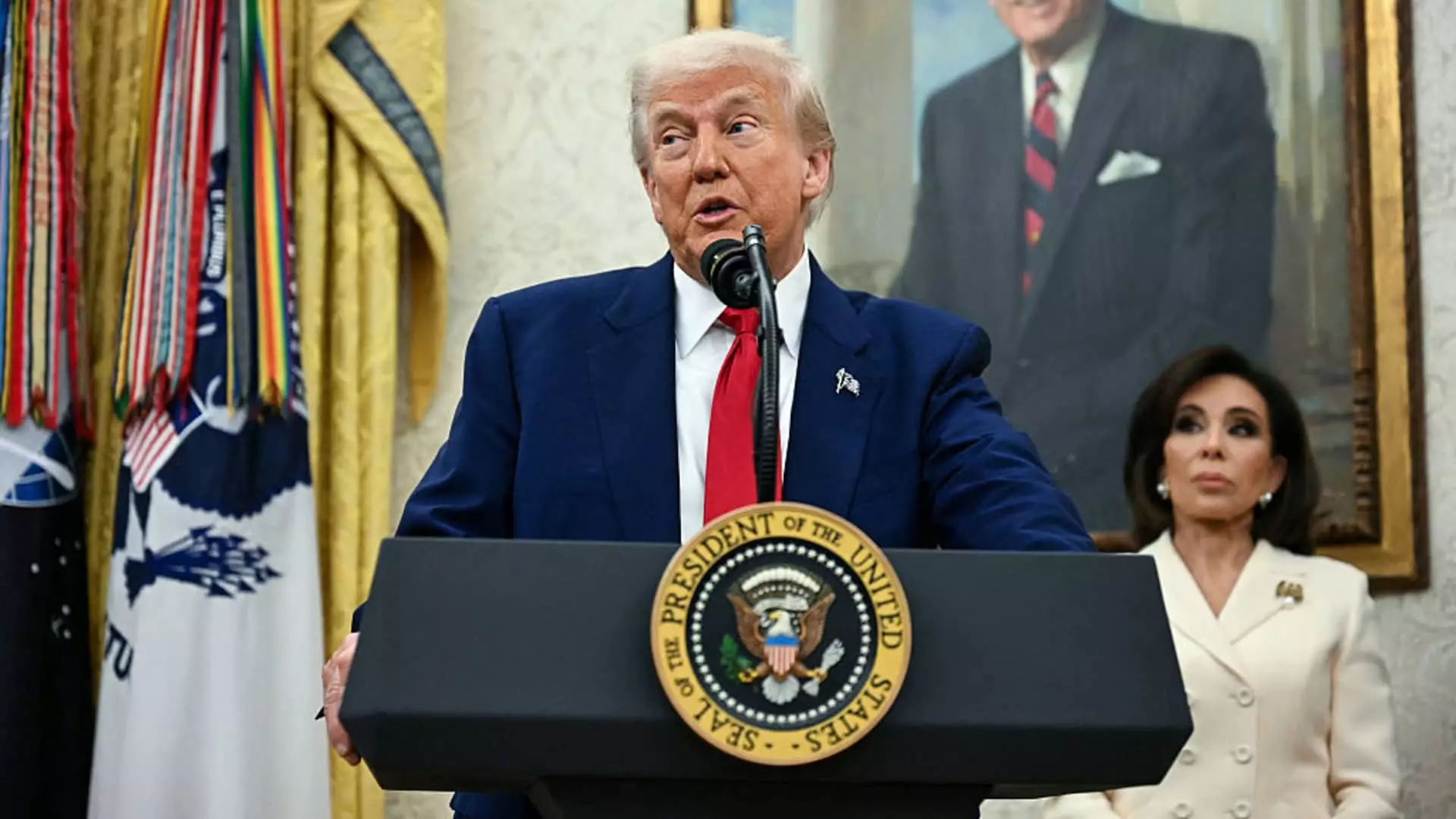In a bold yet bewildering display of political theater, former President Donald Trump’s approach to trade negotiations has always oscillated between aggression and retreat. As critics have eagerly coined the term “TACO trade,” with “TACO” standing for “Trump Always Chickens Out,” it highlights a troubling pattern in which Trump instigates tumultuous market downtrends with severe tariff threats, only to backtrack swiftly, leading to fleeting market recoveries. This strategy is more than just a reflection of Trump’s negotiating style; it poses a serious question about the sustainability and integrity of his economic policies.
Trump’s unwavering belief that his tactics represent some form of negotiation acumen is troubling. When pressed to explain his frequent reversals on tariffs—such as the announced 50% levies on the EU, temporarily halted in response to a request for extension—his rhetoric transformed his retreat into a negotiation tactic. Calling this “chickening out” is a gross simplification; it transcends mere name-calling. It reveals an unsettling reality where the exercise of power is reduced to the whims of a single man not unlike a jester fumbling in a royal court.
The Illusion of Victory
The former president took the liberty of associating his tariffs with tangible negotiating power as a way to justify his actions. Yet, can we really celebrate the so-called victories derived from his bombastic methods? While Trump claimed his tariff threats initiated vital dialogue with global players like the European Union, such claims are fraught with contradictions. Using punitive economic measures dressed as negotiation strategy undermines the possibility of genuine partnerships and long-term economic stability.
After unilaterally disrupting trade relations, claiming credit for minor agreements feels less like genuine diplomacy and more like a magician pulling rabbits out of hats for applause while neglecting the years of strategic investment required to sustain international relationships. It’s a dangerous precedent, fostering an environment where trade discussions become less about mutual respect and progress and more about intimidation and theatrics.
Consequences for the Broader Economy
The volatility introduced by the president’s tactics has not gone unnoticed. Stock markets, responding predictably to each new revelation from the White House, experienced rampant fluctuations like an emotional roller coaster. Investors have faced a turbulent climate where tariffs can appear and vanish overnight, leading to significant losses in confidence. The damaging ripple effect this has across the broader economy should underpin a more serious discussion about the ramifications of using trade as a political bargaining chip rather than a tool for stability.
What’s more alarming is that this cycle seems to be a repeated pattern, from tariffs on China to sweeping trade regulations against various countries. The instability brought forth not only jeopardizes partnerships but can also lead to long-term economic consequences, profoundly affecting trade dynamics for years to come. It raises an essential dilemma: how can a nation promote itself as a global leader in trade when its representatives are consistently oscillating between threats and concessions?
By embracing a strategy centered on aggression followed by retreat, Trump’s trade tactics embody a dangerous game that carries severe implications—not just for immediate economic gains but for the future of international relations. The imminent risk in simplistically framing these maneuvers as negotiation reveals a glaring oversight: the cherished principles of economic collaboration and diplomacy may be sacrificed at the altar of theatrical politics.

Leave a Reply